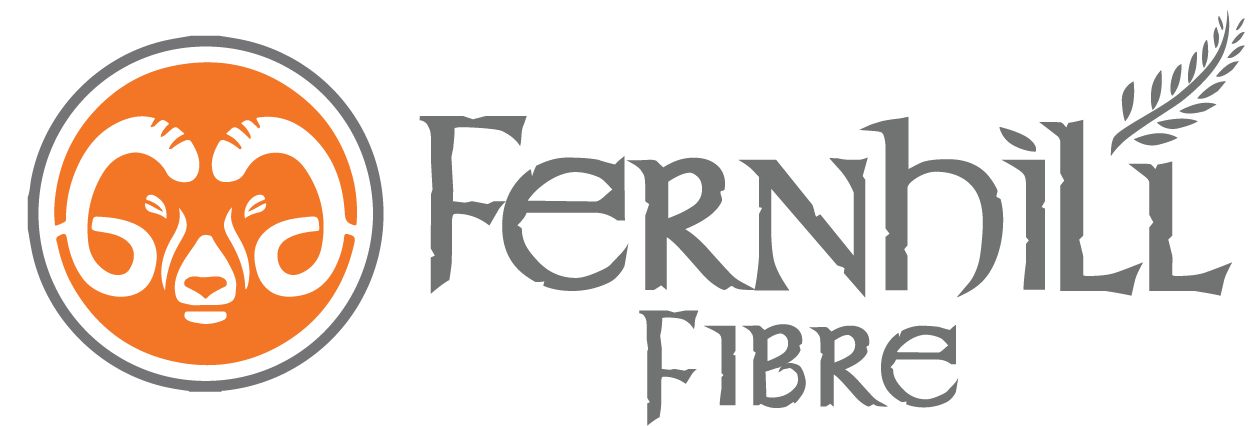Harriet's WOOL SCHOOL Experience At Fernhill Farm
“I gained a huge amount of knowledge from my time at Fernhill Farm. From shearing and wool handling through to spinning raw fleeces, I gained invaluable experience that I believe has really shaped me as a student. Prior to staring at the farm, I would simply go into the yarn store at my university and select a cone of yarn for its colour, gauge and blend. In my naivety I had never looked beyond this stage failing to question what country the wool comes from, how the sheep are treated and what the overall carbon footprint it. As knitwear students, we are constantly encouraged to assess the sustainability aspects of our practice but without this primary knowledge how can we even start to understand let alone do something about it.......this is where Fernhill Farm comes in. I lived at the farm for two months along with two other interns Ellie and Ellie and we became great friends. As soon as you arrive you get stuck into jobs anywhere from feeding Polly and Twinny (the two beloved calves see below) feeding the pigs or exploring the variety of plants in the polytunnel so you will never feel lonely as there is plenty to do".”
We took part in a pilot project wool school which consists of week rotations exploring the journey from raw material through to spinning and felting. Jen launched this idea so that students can see and take part in the whole process.......it was so much fun!We started with a few weeks of wool handling which was fascinating and I really didn’t know what to expect. We saw the sheep being shorn and shortly after sorted the fleeces ready for them to be separated into bags for hand spinners and felters. I learnt about the importance of the staple length of a wool fibre and how the locks differ between the RomneyxShetland and Lustre flock breeds. This will then determine what the fleeces are best for and which bags they will go into for processing. Nothing is wasted from skirt to dag wool and everything has a purpose. It’s really important to get stuck in! No excuses for being poo shy,as a wool handler you will be doing anything from skirting raw fleeces to picking out sheep poo from the short bits of wool. This whole process is so important if you truly want to understand the raw fibres and how to reduce waste by retaining as much fibre as possible
Every Thursday we had a play day which consisted of nattering away with fellow spinners Christine, Lesley and Brenda (Lally) who have a wealth of knowledge anywhere from spinning, felting and hand knitting. Between plenty of cups of coffee and biscuits we learnt the traditional art of hand spinning, both wet and needle felting techniques.
We spent three weeks creating hanks of yarn, wet felted bowls and needle felted rabbits. All of these skills can be taken forward into my final year giving me lots of inspiration for design ideas and new materials to work with. I even bought my first wheel from Brenda that has enabled me to spin my own yarn ready for my final year collection. Jen and Andy are so welcoming and spending time with the farm animals (including the adorable lambs) and the three dogs Weave, Coco and Fizz made the whole Fernhill Farm experience so great. Don’t be disillusioned however as this is working farm and you need to get stuck in, work hard and not be screemish. The skills I learnt have truly shaped my outlook on farming, textiles and the natural environment forever and I would highly encourage any student to intern here





